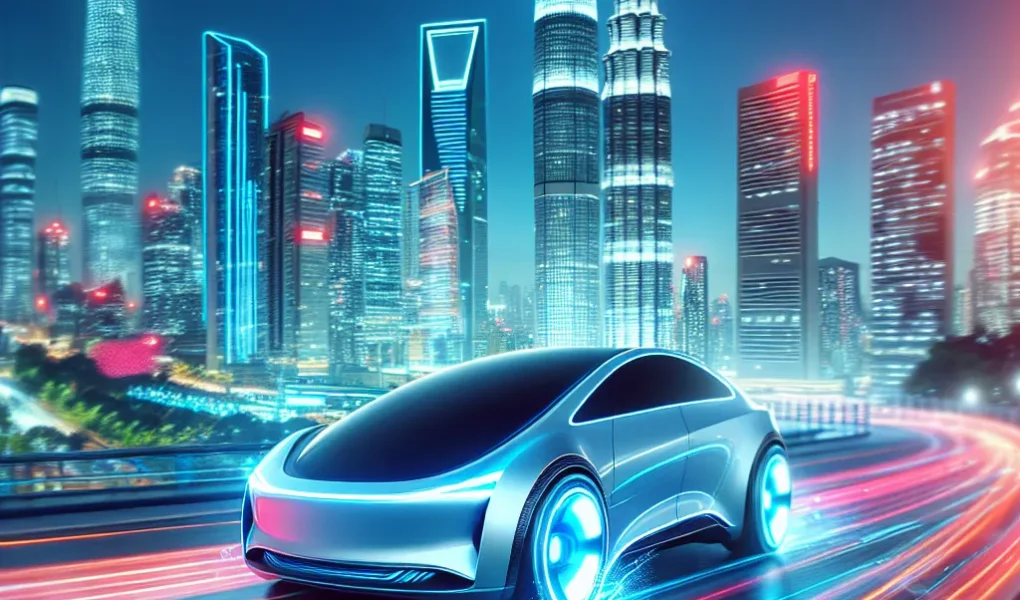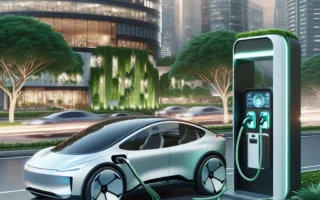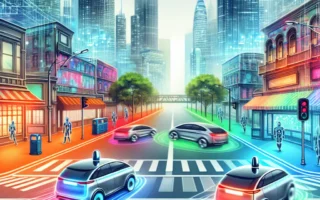The Rise of Electric Vehicles: A Revolution in Transportation
The rise of electric vehicles (EVs) represents a revolutionary shift in the transportation industry. With concerns about climate change and a push towards sustainable energy, electric vehicles have emerged as a key solution to reduce carbon emissions and dependence on fossil fuels. The shift towards electric vehicles is not just a trend, but a fundamental transformation in the way we envision transportation in the future.
One of the key driving forces behind the rise of electric vehicles is technological innovation. Advancements in battery technology, such as the development of lithium-ion batteries with higher energy density, have significantly extended the range and performance of electric vehicles. Moreover, the integration of cutting-edge features like regenerative braking, energy-efficient motors, and advanced charging infrastructure have made EVs a compelling alternative to traditional internal combustion engine vehicles.
Furthermore, the growing focus on sustainability and the increasing availability of renewable energy sources have made the prospect of widespread EV adoption more feasible. As the global infrastructure for electric vehicle charging continues to expand, range anxiety – one of the primary concerns for potential EV owners – is being alleviated, thus accelerating the transition towards electric mobility.
However, despite the promising developments, the rise of electric vehicles also poses several challenges. The need for further investment in charging infrastructure, standardization of charging protocols, and managing the environmental impact of battery production and disposal are among the critical issues that need to be addressed to support the widespread adoption of electric vehicles.
In conclusion, the rise of electric vehicles signifies a transformative period in the transportation sector, driven by technological innovation, environmental awareness, and the growing accessibility of sustainable energy solutions. As the industry continues to overcome the challenges and barriers, the future of electric vehicles appears increasingly promising, heralding a new era of clean, efficient, and sustainable transportation.
Challenges and Opportunities in the Electric Vehicle Industry
The future of electric vehicles is promising, with advancements in technology driving innovation in the industry. However, along with the opportunities, the electric vehicle industry also faces several challenges. One of the primary obstacles is the infrastructure for charging stations. While the number of charging stations is increasing, there is still a need for further development to support the growing fleet of electric vehicles. Additionally, the limited driving range of current battery technology remains a significant challenge. Engineers and researchers are actively working on improving battery energy density and charging capabilities to address this limitation.
Another important aspect is the high initial cost of electric vehicles. Although the cost of battery production is decreasing, electric vehicles still come with a premium price tag compared to traditional internal combustion engine vehicles. This financial barrier presents an opportunity for further investment and innovation in reducing manufacturing costs and making electric vehicles more accessible to a wider market.
Regulatory and policy challenges also impact the electric vehicle industry. Incentives and infrastructure investments by governments play a crucial role in shaping the adoption and growth of electric vehicles. Additionally, standardization of charging protocols and regulations for battery disposal and recycling are essential for the sustainable development of the industry.
Despite these challenges, the electric vehicle industry presents significant opportunities for growth and innovation. With ongoing research and development, the industry is poised to overcome these obstacles and continue to make advancements in sustainable transportation. As technology continues to evolve, electric vehicles are set to play a fundamental role in the future of transportation, offering environmental benefits and energy efficiency.
Innovations Shaping the Future of Electric Vehicle Technology
The future of electric vehicles is being shaped by a number of key innovations that are driving the advancement of electric vehicle technology. One of the most significant innovations is the development of high-capacity and fast-charging batteries. These batteries are essential to extending the driving range of electric vehicles and reducing charging times, making them more convenient and practical for everyday use. In addition, advancements in battery technology are also focused on improving energy density, lifespan, and overall safety.
Another important innovation shaping the future of electric vehicles is the evolution of lightweight materials. Lightweight materials such as carbon fiber and advanced composites are being increasingly used in electric vehicle construction to improve efficiency and range. By reducing the overall weight of the vehicle, these materials contribute to increased energy efficiency and better performance.
Furthermore, advancements in electric powertrain technology are driving the development of more efficient and powerful electric motors. These innovations are crucial in increasing the overall performance of electric vehicles, making them more competitive with traditional internal combustion engine vehicles.
Additionally, the integration of advanced driver-assistance systems (ADAS) and autonomous driving capabilities are revolutionizing the driving experience for electric vehicle users. These technologies not only enhance safety but also pave the way for future mobility solutions and smart transportation systems.
In conclusion, the future of electric vehicles is being shaped by a myriad of innovations that are driving the technological advancements in the industry. From high-capacity batteries to lightweight materials and advanced powertrain systems, these innovations are instrumental in making electric vehicles more practical, efficient, and appealing to a wider audience.



